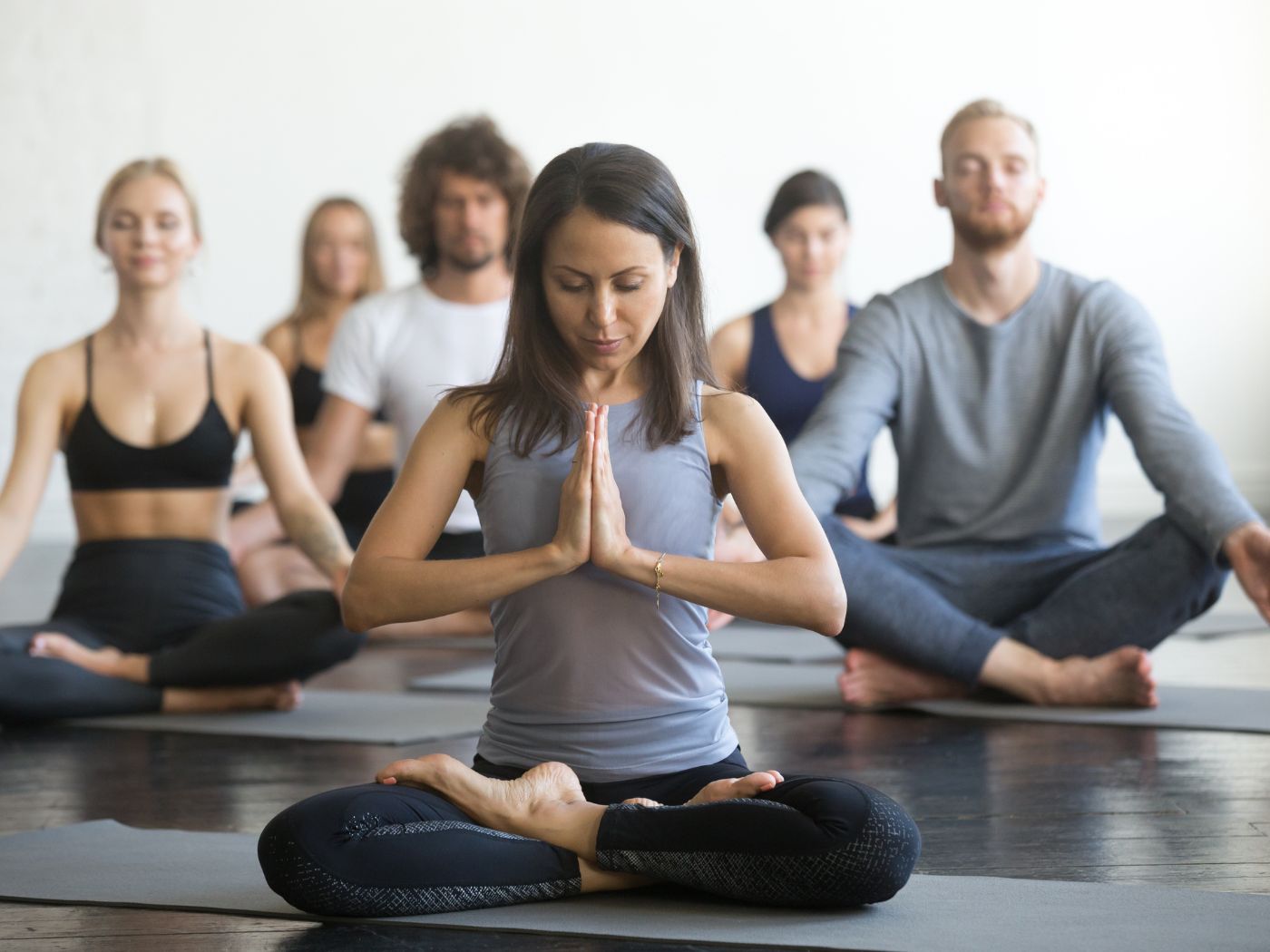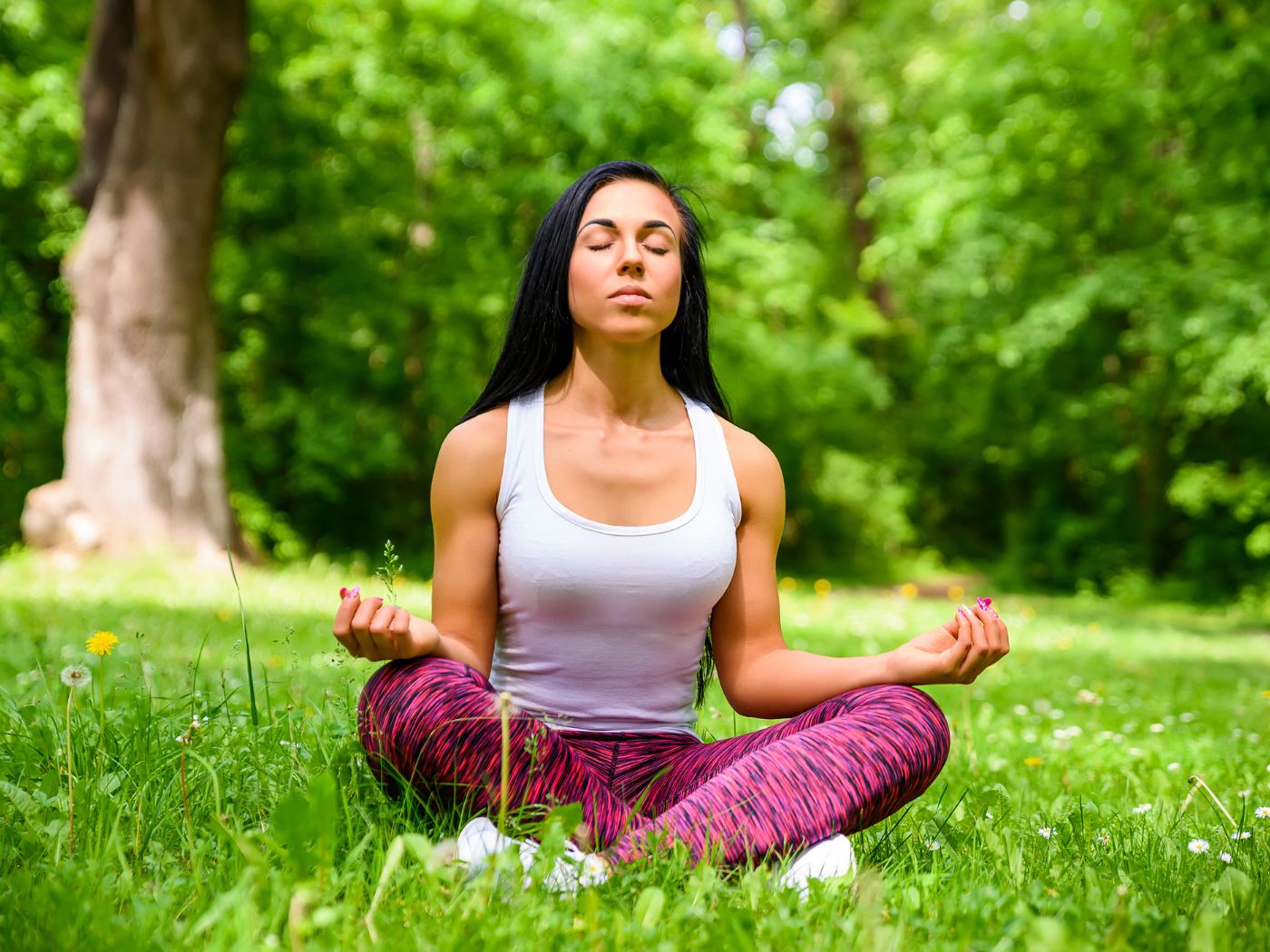-
What is Meditation
-
Types of Meditation
-
How to Practice Meditation
-
How Does Meditation Affect Physiologically and Psychologically
-
Tips for Meditating
-
Facts About Meditation
-
Conclusion
-
Frequently Asked Questions On Meditation (FAQs)
What is Meditation?
Meditation can be called a consciousness-changing technique that has several benefits for psychological well-being. In this technique, a person focuses the mind on a particular object, thought or activity to treat attention and awareness, to achieve a mentally clear and emotionally calm and stable state.
Types of Meditation
Meditation comes in several forms that include the following:
2. Heart-centered meditation is all about quieting your mind and bringing awareness to the heart. It's the energy centre in the middle of your chest.
3. Mindfulness meditation motivates you to focus objectively on negative thoughts as they come to your mind so that you can achieve a state of calm.
4. Tai Chi and Quigong are moving forms of meditation that consist of physical exercise along with breathing and focus.
5. Walking meditation teaches you to turn your focus to both body and mind as you breathe in time with your footsteps.
6. Transcendental meditation is a technique where you repeat a mantra to quiet your thoughts and achieve greater awareness. This mantra can include a word, phrase or even a sound.
How to Practice Meditation?
There are many forms of meditation and ways to practice it. But if you're a beginner at it, this is a great way to start practising meditation:

Step 1: Choose a quiet spot where you don't find any distractions. Make sure you turn off your phone, television and other such distractions. If you wish to play some soft music, select something that is calm and repetitive.
Step 2: Set a time limit to meditate. If you're very new to it, you might want to stick to a shorter time of five to ten minutes.
Step 3: Pay all your attention to your body and get comfortable in whatever position you like. You can sit cross-legged on the floor or in a chair as long as you feel you can sit comfortably for several minutes at a stretch.
Step 4: Focus on your breathing. Take deep breaths that expand your belly and then exhale slowly. Pay attention to how each of your breath feels inside you.
Step 5: Notice all your thoughts as they come to you. The whole purpose of meditation isn't just to clear your mind because your mind will inevitably wander. You must focus on gently bringing your attention back to your breath whenever you realise your thoughts are drifting. Don't judge your thoughts or try to analyse them. Direct your mind back to your deep breathing instead
How Does Meditation Affect Physiologically and Psychologically?
When you make use of meditation in your daily life, it alters your view and response to your surroundings. Meditation can have both physiological and psychological effects on an individualSome of the physiological effects include:
- Lowered state of physical arousal
- Reduced respiration rate
- Decreased heart rate
- Changes in brain wave patterns
- Lower stress levels
Some of the psychological, emotional and health-related effects include:

Tips for Meditating:
When you make use of meditation, there are some basic tips that you should keep in mind, especially if you're entirely new to it. Here is what you should remember:
2. Set a Schedule: Try to fix a certain time to indulge in meditation for mind relaxation and follow it daily. Ideally, doing it for a few minutes first thing in the morning would work best.
3. Get Comfortable: You can meditate in whatever position you like - sitting cross-legged, on a chair, or lying on your bed. It's important to be comfortable in your position before you begin meditating. You won't be able to concentrate if you're getting uncomfortable, stiff or restless.
4. Focus on What You're Feeling: Breath naturally and always notice the feelings and sensations that you are experiencing as you breathe in and breathe out.
5. Don't Suppress Your Feelings: Your mind will wander as you meditate and sometimes, it can lead to thoughts and feelings that might make you uncomfortable or distressed. Your main goal should be to acknowledge these thoughts without judging them and guide your focus back to breathing, not to clear your mind of such thoughts.
Facts About Meditation:
Although meditation for mind relaxation does feel like a strict technique where you'd assume that you need to do it a certain way or emit all your thoughts, it's not all that tough. Here are some facts about meditation that you need to know of:1. It's Not Necessary to Clear Your Mind of Thoughts:
It's impossible to not think. So, get rid of the thought that you need to empty your mind of thoughts when you meditate. Your goal is not to stop thinking. Practically, it should be to witness and observe your thoughts. Meditation teaches you to evaluate your thoughts objectively and then let them go.2. It's Alright to Not Always Feel Peaceful:
Meditation is believed to lead you to a calmer state of mind. But, it isn't always the case. At times, an individual's life is way too stressful or exciting to feel completely at ease and at peace and that's absolutely okay. If meditation leads you to have a sense of inner peace, nothing like it. If it doesn't, that's fine as well.3. It Doesn't Mean You Can't Meditate if You Run Into Issues:
You might try to meditate and won't feel it is a successful session. It could be because you couldn't calm your mind to be able to observe your thoughts or the whole act only felt boring. People who meditate regularly also experience times where it just doesn't work or they don't feel they got into a relaxed space. And it's completely fine. You can try again some other time or day.4. It's Alright to Fall Asleep:

5. It Might Not Always be Blissful:
It'd be a dream if you feel blissful each time you meditate. Meditation does lead to feeling bliss and happiness. But sometimes, it may not. Whatever state of mind it leads to is absolutely fine. There will be times when bliss won't be achievable and you shouldn't count that as a failure.6. It Doesn't Have to Lead to Inaction:
Meditation encourages you to accept everything in the world as it is. But that long-term meditation will lead you to take no action in life and that isn't true at all. Meditation encourages you to step back and notice your life through an objective lens, but no form of meditation can recommend that you need to stop caring about any of the important causes. Instead, use meditation to choose your actions more wisely and make sure your actions come from a place of rational thinking and not rash emotions.7. It isn't Therapy:
Meditation is a fabulous tool for introspection, but it is not therapy. Meditation helps a person become emotionally healthier, but it can never work as a substitute for therapy. It sure does make for an excellent complement to therapy, where a person can further examine and sit with their thoughts, feelings, and experiences. But it shouldn't be considered as an equivalent practice.
Conclusion:
There is no such thing as perfect meditation. The sooner you get rid of that myth, practicing meditation will get better. Sometimes, your focus will wander or you might forget to follow your breath. But that's alright as it is all a part of the experience. What's crucial is that your meditation stays consistent. It will take time to get comfortable with your mind. You might even experience setbacks along the way, but that's all a part of meditating too. Keep practising, every single day, no matter if you succeed or not. It's the journey of meditation that is more fruitful than the destination.
Also read articles such as Top 10 Tips for Healthy Mind & Body to get relaxed and pamper yourself at home.
Frequently Asked Questions On Meditation (FAQs)
1. What does meditation do to your brain?
Meditation can thicken the prefrontal cortex - the brain center that manages higher-order brain functions like decision making, concentration and increased awareness. When there is a change in the brain due to meditation, higher-order functions become stronger and lower-order brain activities like heart rate, fatigue, blood pressure and consciousness decrease.
2. What is the main goal of meditation?
The whole concept of meditation is to practice the mind and body connection. Its main purpose is to help you increase both your physical as well as mental peace and calm, which helps you learn how to live entirely in the present moment. It helps eliminate your worries of the past and the future and brings you back to the present and live it to the fullest.
3. Why is 4 am the best time to meditate?
4 AM and 4 PM are considered to be the most auspicious time to meditate. This is because it is said that the angle between Earth and the sun is 60 degrees around this time. Being in a sitting position at these times will help balance the pituitary and pineal glands that give you maximum results.






